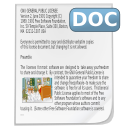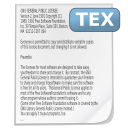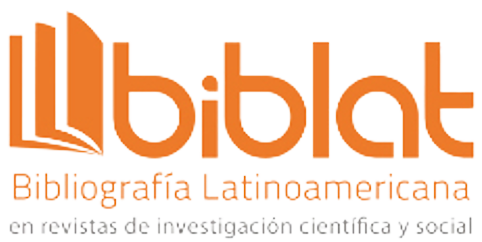The Role of Artificial Intelligence in the Transformation of Judicial Processes
Abstract
This article conducts a systematic review to analyze the impact of artificial intelligence (AI) on the transformation of judicial processes, following the guidelines of the PRISMA methodology. The main objective is to assess how AI contributes to efficiency, accuracy and accessibility in the judicial field, identifying both its benefits and associated ethical challenges. Studies published between 2020 and 2024 were collected and analyzed in databases such as Scopus and SCielo, using specific search equations and previously defined inclusion and exclusion criteria.
The results highlight that AI can optimize judicial processes by automating routine tasks and predictive decision making, with examples of implementation in countries such as Estonia and Singapore. However, concerns about algorithmic biases and system transparency were also identified. It is concluded that, to ensure fair and effective adoption, it is critical to establish regulatory frameworks and promote human oversight in judicial systems that integrate AI.
Downloads
References
G. Sierra, “Implementación de la Inteligencia Artificial en las Altas Cortes de Colombia: los casos de la Corte Constitucional y el Consejo de Estado”, Revista eurolatinoamericana de derecho administrativo, vol. 11, no. 1, enero de 2024. [Publicación seriada en línea]. Disponible en: https://www.scielo.org.ar/scielo.php?script=sci_arttext&pid=S2362-583X2024000100005&lng=es&nrm=iso DOI: https://doi.org/10.14409/redoeda.v11i1.13824
D. Patreliuk, M. Leonenko, Y. Dekhtiarov, A. Bakhruz y I. Servetsky, “The Impact of Using Algorithmic Systems on the Criminal Trial: International Experience”, Pakistan Journal of Criminology, vol. 16, no. 3, septiembre 2024. [Publicación seriada en línea]. Disponible en: https://www.pjcriminology.com/publications/the-impact-of-using-algorithmic-systems-on-the-criminal-trial-international-experience/
A. Shabalin, O. Shtefan, L. Andrushchenko y V. Olefir, “Use of digital technologies in judicial proceesinds in some countries of europe and the USA”, Petita: Jurnal Kajian Ilmu Hukum dan Syariah, vol. 9, no. 1, 2024. [Publicación seriada en línea]. Disponible en: https://petita.ar-raniry.ac.id/index.php/petita/article/view/218 DOI: https://doi.org/10.22373/petita.v9i1.218
E. Chavez, N. Valderrama, A. Chavez y C. Huerta ,“Uso de la Inteligencia Artificial y su eficacia en la administración de justicia en la República del Perú: Aplicativo ChatBot”,
A. Vasiliy, “Integrating Digital Technologies into Russian Legal Arbitrazh Proceedings: Current State and Prospects for Development”, Kutafin Law Revie, vol. 11, no. 2, 2024. [Publicación seriada en línea]. Disponible en: https://kulawr.msal.ru/jour/article/view/274 DOI: https://doi.org/10.17803/2713-0533.2024.2.28.268-294
L. Valenzuela, Y. Ocaña, M. Faustino, Y. Larico, E. Zubieta y Y. Uribe, “Law and artificial intelligence possibilities and regulations on the road to the consummation of the digital verdict”, Journal of law and sustainable development, vol. 11, no. 6, 2023. [Publicación seriada en línea]. Disponible en: https://ojs.journalsdg.org/jlss/article/view/1202 DOI: https://doi.org/10.55908/sdgs.v11i6.1202
A. Montesinos, “Algoritmos predictivos y perspectiva de género en el proceso penal”, Revista d'Internet Dret i Política, no. 39, noviembre 2023. [Publicación seriada en línea]. Disponible en: https://raco.cat/index.php/IDP/article/view/n39-montesinos DOI: https://doi.org/10.7238/idp.v0i39.416439
R. Coloma, C. Agüero y R. Lira, “Tecnología para decidir hechos en procesos judiciales”, Revista chilena de derecho y tecnología, vol. 10, no. 1, 2021. [Publicación seriada en línea]. Disponible en: https://rchdt.uchile.cl/index.php/RCHDT/article/view/56816 DOI: https://doi.org/10.5354/0719-2584.2021.56816
S. Russell y P. Norvig, Artificial Intelligence: A Modern Approach, 2020. DOI: https://doi.org/10.1093/oso/9780190905033.003.0012
M. Sanchez, “La inteligencia artificial en el sector público y su límite respecto de los derechos fundamentales”, Estudios constitucionales, vol.20, no. 2, diciembre 2022. [Publicación seriada en linea]. Disponible en: https://www.scielo.cl/scielo.php?script=sci_serial&pid=0718-5200&lng=es&nrm=iso DOI: https://doi.org/10.4067/S0718-52002022000200257
E. Cardenas y V. Molano, “Un estudio sobre la posibilidad de aplicar la inteligencia artificial en las decisiones judiciales”, Revista Direito GV, vol. 17, no. 1. 2021 [Publicación seriada en línea]. Disponible en: https://www.scielo.br/j/rdgv/a/vZDXYYPRrcwgsgJDWQf97QG/?lang=es DOI: https://doi.org/10.1590/2317-6172202101
G. Corvalan, “Inteligencia artificial: retos, desafíos y oportunidades - Prometea: la primera inteligencia artificial de Latinoamérica al servicio de la Justicia”, Revista de Investigações Constitucionais, vol. 5, no. 1, abril 2018, [Publicación seriada en linea]. Disponible en: https://www.scielo.br/j/rinc/a/gCXJghPTyFXt9rfxH6Pw99C/?lang=es DOI: https://doi.org/10.5380/rinc.v5i1.55334
U. Barbara, “Pensar y procesar. Una crítica a los sistemas democráticos basados en la inteligencia artificial desde el reconocimiento, el compromiso y la justicia”, Revista de filosofía, vol. 79, 2019, [Publicación seriada en línea]. Disponible en: https://www.scielo.cl/scielo.php?script=sci_arttext&pid=S0718-43602022000100190&lang=es
M. Sanchez “El derecho a la protección de datos personales en la era digital”, Revista Eurolatinoamericana de Derecho Administrativo, Vol. 10, 2023, [Publicado seriada en linea]. Disponible en: DOI: https://doi.org/10.14409/redoeda.v10i1.12626
https://scielo.isciii.es/scielo.php?script=sci_arttext&pid=S1886-58872023000100017&lang=es
- Conceptualization
- Data curation
- Formal Analysis
- Investigation
- Methodology
- Project administration
- Supervision
- Validation
- Visualization
- Writing - original draft
- Writing - review & editing
- Conceptualization
- Data curation
- Investigation
- Methodology
- Supervision
- Validation
- Writing - original draft
- Writing - review & editing
Copyright (c) 2025 Innovation and Software

This work is licensed under a Creative Commons Attribution 4.0 International License.
The authors exclusively grant the right to publish their article to the Innovation and Software Journal, which may formally edit or modify the approved text to comply with their own editorial standards and with universal grammatical standards, prior to publication; Likewise, our journal may translate the approved manuscripts into as many languages as it deems necessary and disseminates them in several countries, always giving public recognition to the author or authors of the research.
























